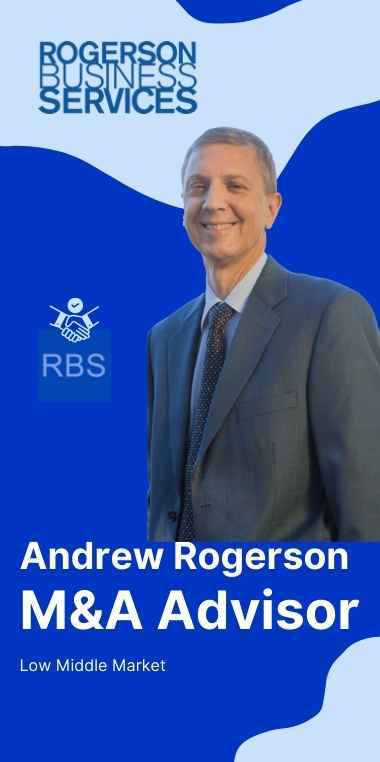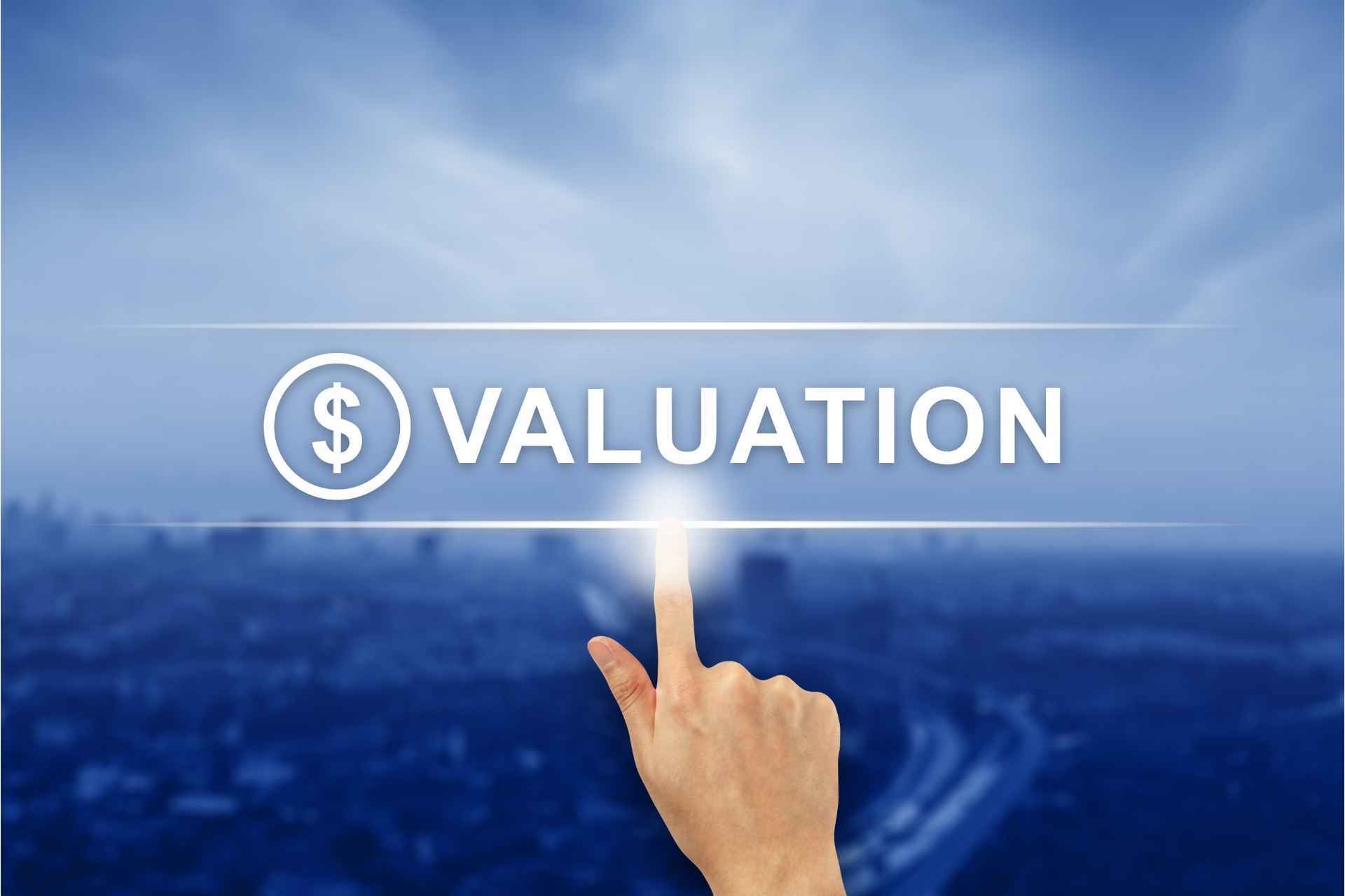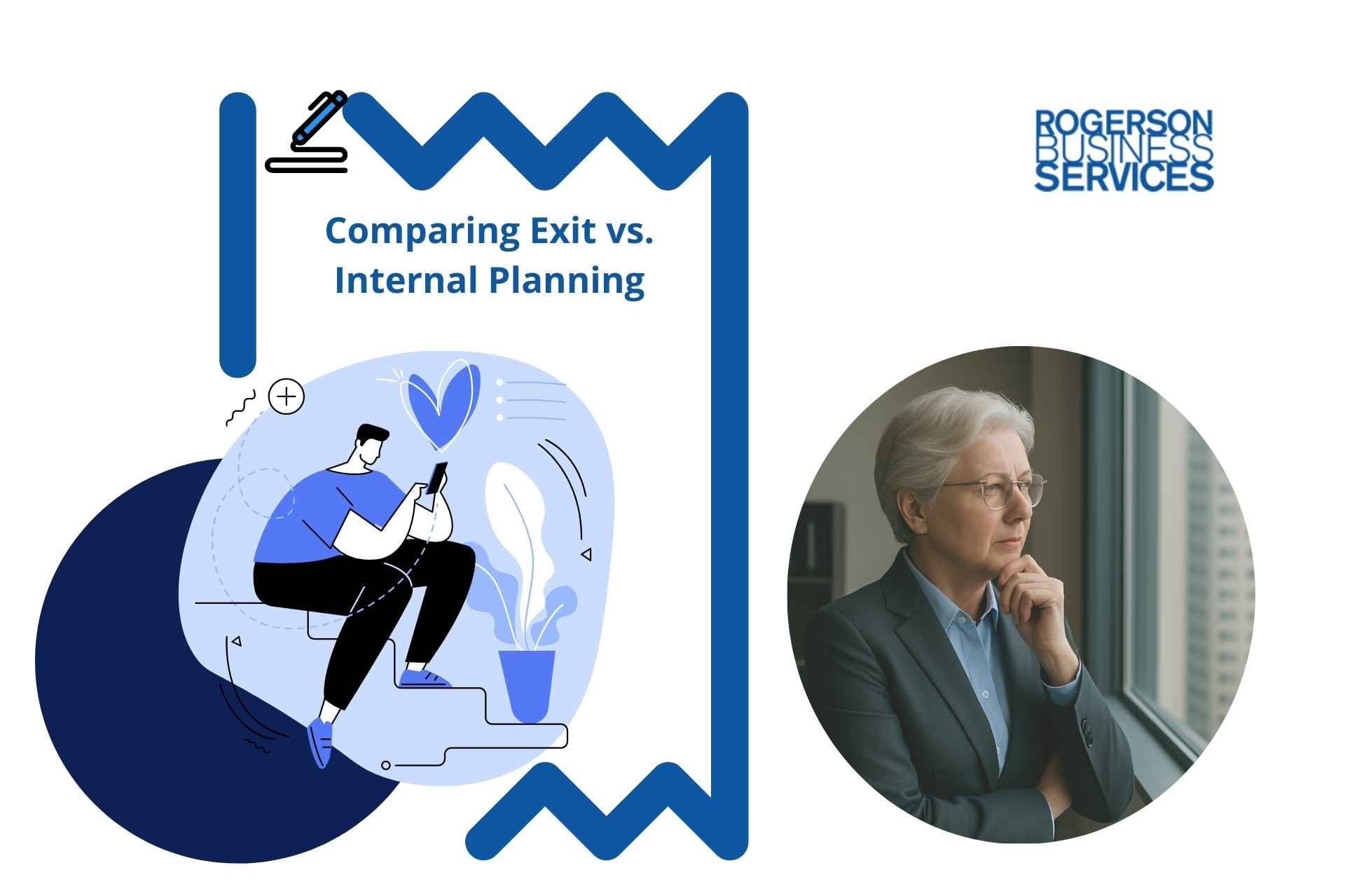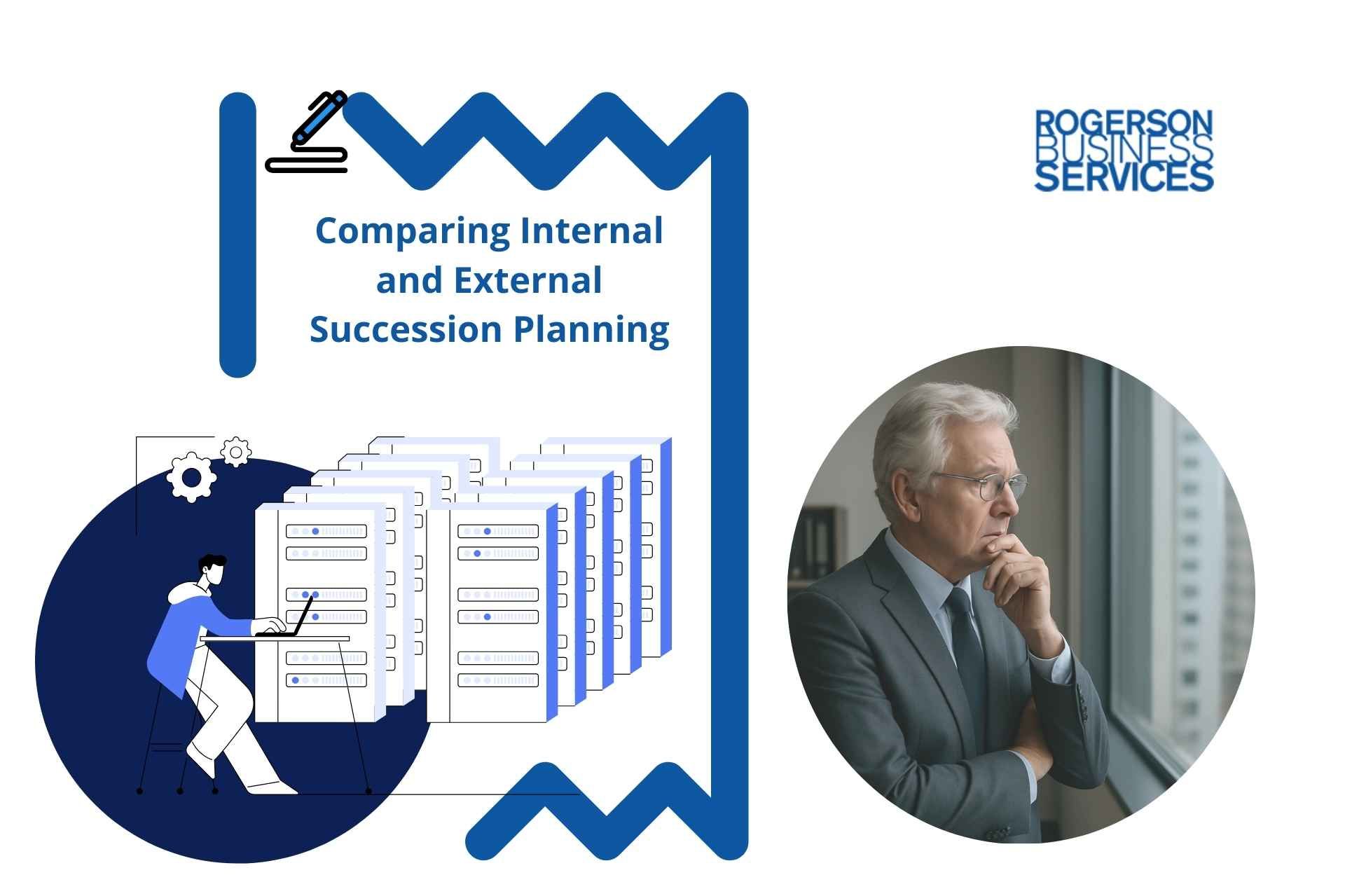The Ultimate Guide To Help Exit an Aerospace and Defense Company
Considering an exit strategy from your lower middle-market an Aerospace & Defense Company in California can be overwhelming. Without a proper, well prepared, exit plan, and an intermediary or professional business M&A Advisor to facilitate the process, there is no way to guarantee that you made the right decision.
Get The Guide
M&A Guide
Increase Your Chance Of Success!
Guide to Help Exit a California Aerospace and Defense Company
Everything you need, all in this business exit planning guide
Exit an Aerospace and Defense Company
Exit planning for a business of any kind is both an exciting and intimidating endeavor. You've likely spent years pouring time and money into creating your aerospace & defense company, becoming an expert in the field. Whether the allure of retirement is calling your attention or you're ready to move on to a new business endeavor, you're likely reading this because you're unsure about how to sell your company.
If you want to maximize your business's profit, it's critical to develop a business owner exit strategy plan. However, there are many moving parts in doing so, and there's plenty of room for error. We'll show you how to develop an exit strategy, issues to watch out for, and why hiring an M&A advisor alleviates the stress involved with selling an aerospace defense company.

Top Reasons to Consider an Exit Strategy
An exit strategy is crucial because it ensures you have all paperwork together to sell your business, and it helps you secure the highest sale price possible. By working with an M&A broker, they'll support you with the following items before you sell your aerospace defense company.
Vetting Prospects
Although it's exciting to receive lots of interest in your business when you put it up for sale, the quality of that interest is more important than quantity. An exit strategy will help you plan for the types of investors you want to attract. Different investors seek out different types of exit plans, which will save you time when sorting through offers.
Understanding Taxes
Taxes are inevitable when selling your business, but there are ways you can arrange the sale to reduce the amount of taxes owed. As part of the tax planning process, you can also include a clause where you state that the prospective buyer must act quicker than usual if a tax law change is about to happen that would increase your taxes.
Preparation for Acquisitions
A common strategy for larger companies looking to reduce their competition is growth through acquisitions. In this case, you might receive an unexpected offer from a business looking to acquire your company for their benefit. While this can be financially advantageous, you want to avoid revealing sensitive information about your business if the sale doesn't go through. For this reason, it's essential to prepare for acquisitions as part of your exit strategy plan.
Goal Setting
Since business owners typically work on exit strategy plans long before they sell their business, it offers the opportunity to set goals. You should set clear goals you want to achieve, which often involves ways to increase your business's value. Make the objective clear to your employees and company leaders; it should become a new mentality that the business carries.
Business Valuations
Of the many exit strategy topics, business owners are typically most interested in a business valuation. Business valuations offer an estimate of how much you could make for your company. Receiving a professional business evaluation from an M&A advisor is critical since it will prove to buyers that you're taking the sales process seriously. It will also help you identify areas you can improve upon to increase your company's value before you sell it.
Support Transitions
Transitions can be unsettling to employees, vendors, and providers. There's usually uncertainty with how the new owner will choose to manage the business. However, by laying out terms of the transition in your exit plan, you can minimize this uncertainty and help set the new owner up for a smooth, successful transition.
Identify Good Timing
An exit strategy plan involves assessing the current market and making predictions for how the future market may look. Doing so will help you determine when the best time will be for you to sell your business to maximize your profit.
Personal Emergencies
There's no way to know when a personal emergency will arise, and once you're in the process of selling your business, it isn't easy to put the sales process on pause. By having an exit strategy plan, someone will be able to more easily step in and take over in your absence by following it. Ideally, you should have an M&A advisor on your side, as they'll take care of all these details for you regardless of whether you have a personal emergency.
Boost Your Options
An exit strategy will help you increase your options and help you think out of the box in various scenarios. For example, you might find yourself in a position where it appears the only option is for you to sell your company to a competitor for a lower value than your asking price. By developing an exit strategy, you'll have unique workarounds to use.
Prepare for Market Downturns
It's impossible to know when a recession will occur, whether on a national scale or within your aerospace defense sector. Nevertheless, an exit strategy will help you plan for the possibility of a recession so that you know how to minimize a potential decline in your business' value.
How to Sell an Aerospace and Defense Company
There's a lot involved with preparing to sell an aerospace & defense business in California. As you now know, an exit strategy is critical to ensuring you're prepared to put your company up for sale.
However, before you move forward with developing an exit strategy framework, you should first assess your situation to see if selling is the right choice for you.
Initial Questions You Should Be Able to Answer
Below are some basic questions you should consider before selling your aerospace defense company.
- Is the sale an economically smart decision?
- If you didn't sell your business, what kind of earnings could you expect to receive in the future if operations remain the same?
- What will the sales profit be after you pay taxes and advisors? Is the profit worth it?
- What will you do with the profits you earn from selling your aerospace defense company?
- Will you receive a rate of return that makes the profit work for you?
- If you have business partners, do they also want to sell the company?
Types of Aerospace Defense Companies
There are various sectors within the aerospace defense field, and this is a booming market in California. So, if you're thinking about selling your aerospace defense company, you can expect to receive a lot of interest—assuming you have a professional business valuation and all your paperwork in order.
Aerospace Electronics Systems Businesses
Aerospace Electronics systems companies often involve GPS, wireless communication, radio, and television. They can also include manufacturing aircraft engines and meteorological systems, so there's a high demand for businesses for sale in this industry.
High-Technology Engineering
High-technology engineering covers a broad range of topics, including aerospace research and development. By conducting research and using experimental research, this sector incorporates electronics, physics, and mathematics, among many others.
Aerospace Manufacturing Companies
Rocket companies in California are an example of aerospace manufacturing businesses. They're often wholesalers who are in charge of distributing and transporting aerospace equipment and supplies and are common for government aerospace defense contracts.
Aircraft Seating Manufacturing Companies
Aircraft seating manufacturing companies fall into the measuring and controlling device category. There is a demand for aircraft seating manufacturing companies in California.
Luxury VIP Aircraft Seating Design Companies
Taking it a step above standard aircraft seating manufacturing companies, those who design luxury VIP aircraft seating serve the highest-ranking governmental figures.
Semiconductor Facilities and Clean Rooms
Semiconductors allow devices to pass currents easily from only one direction compared to the opposite direction. The semiconductor facilities and clean rooms industry often involve carbon and graphite product manufacturing.
Drones
Drones are a vital aspect of aerospace defense since they allow governments to assess areas of concern from afar without putting human life at risk. With the rapid development of new drone technology, this sector is in high demand in California.
Space Exploration
Telescopes make up a big part of the space exploration industry. It's common for both astronomers and robotic space probes to make up the space exploration sector.
Missiles
Aerospace companies in California that produce missiles are in demand. Global aerospace and defense efforts continue to need missiles, so you will likely have a large market for selling your missiles business.
Military Aircraft
There's a constant need for new and innovative military aircraft as governments seek to utilize airspace for defense versus making themselves more vulnerable on the ground.
Space Systems
From communication to navigation and weather predictions, we all rely on space systems. As an in-demand aerospace defense sector, you should get a good value for your space systems company.
Ground Defense
A high-quality aerospace defense also relies on good ground defense. If you have a ground defense company that supports aerospace efforts, you could be in an excellent position to sell your business.
Shipbuilding
Like ground defense, marine defense is vital to the aerospace sector. Your shipbuilding business will be attractive to potential aerospace defense buyers if it incorporates space for items such as military aircraft and missiles.
List of Aerospace Companies on the West Coast
From aerospace companies in northern California to aerospace companies in southern California, buyers are always looking for mid-market companies for sale. Below are examples of some—but certainly not all—of the types of aerospace defense companies on the market.
- Aerospace companies for sale
- Aircraft companies for sale
- Part 145 repair station for sale
- Aviation business for sale
- Metrology business for sale
- SDVOSB business for sale
- Government contracting company for sale
- Composite manufacturing business for sale
- Rocket lab companies for sale
Sell-Side M&A
Four step process to market your California lower middle market business for sale
01 Exit Plan - business valuation
Your potential buyers can come from many areas. Employees, individual and group investors, Private Equity Groups, and even competitors who may have an interest in purchasing your business. If a competitor is interested, you don't want to reveal too much information about your business, especially anything that could hurt your business if the deal falls through.
Once you decide to sell, get your business ready, and get help from a trusted and accredited California M&A Advisor.
An M&A Advisor will vet potential buyers to make sure they are qualified and are serious about purchasing your business.
A California Licensed M&A Advisor knows the ins and outs of selling a California business and can help you get your business in shape to get you the best deal.
02 Buyer Analysis
One of the first things your M&A Advisor will do, is help you to create an exit plan. An M&A Advisor knows exactly how to plan an M&A exit strategy. In fact, you might get a M&A Advisor to help you with an exit plan long before you're ready to sell your California company.
An M&A Advisor is knowledgeable about how to calculate the value of a business to sell and will aim to get the highest value for your business. Once everything is ready to go, they'll list your business for sale. An M&A Advisor will be an expert at listing a California businesses for sale.
After your business is listed, the M&A Advisor will handle all the marketing of your business to promote deal origination and get you in front of potential buyers. They'll also set a buyer list and work with you to figure out who to go after for the best value.
03 Deal Origination - marketing
An M&A Advisor will then work to get you as many qualified and motivated buyers of your business as possible.
They will market your business through the proper channels, including social selling and targeting and generating interest. They'll vet and follow up with interested buyers whether off-market or publicly listed.
Once the offers come in, your M&A Advisor will evaluate all offers and conduct market offer analysis to make sure you're getting the best deal.
04 Negotiation & Closing
Buyer Due Diligence
Once a buyer is performing their own due diligence, the M&A Advisor will help you navigate the process to make sure everything is running smoothly. They'll negotiate a Letter Of Intent between you and the buyer to lay out the proposed aspects of the deal. Your M&A Advisor will also help you gather all of the necessary paperwork discussed above. If the buyer asks for additional documentation, your M&A Advisor can help guide you.
As a buyer is going through the due diligence process, they will be on the lookout for red flags about your business. An experienced M&A Advisor is knowledgeable about these warning signs and can help you prevent them. Red flags may include refusing to disclose why you're selling, not allowing time to conduct due diligence, refusal to introduce the buyer to employees, suppliers, landlords, and more.
Definitive Purchase Agreement
The M&A Advisor will oversee the Definitive Purchase Agreement with the help of the transaction attorneys to make sure both parties are happy with the terms. A Definitive Purchase Agreement protects both you and the buyer as it will clearly state exactly what is and is not being sold. It can also protect the buyer from certain liabilities. A Definitive Purchase Agreement will also help you deal with the legal complexities of selling a California lower middle market business.
Once the Definitive Purchase Agreement is finalized, the M&A Advisor will help with any final items that need to be done as part of the closing process including working with a California Licensed Escrow company.
Closing - Finalize the Transaction and Close the Deal
Finally, your M&A Advisor will help prepare the close of your transaction. Once the closing is complete, they'll assist with overseeing the transition of the business change of ownership.

Due Diligence Checklist for Selling a Business
Whether you're selling your business on your own or working on an M&A strategy with your professional advisor, you'll need to ask yourself some questions as part of the due diligence process. Potential buyers searching for mid-market businesses for sale will want to make sure that you considered the following:
- Does your company have paperwork about its finances and operations easily accessible to show potential buyers?
- Is your bookkeeping up to date? You'll need to show buyers details such as payroll registers, customer lists, and invoices, among many others.
- Do you have all the information you need to obtain an adjusted Earnings Before Interest, Taxes, Depreciation, and Amortization (EBITDA)? You'll need to have an understanding of your add-backs and adjustments.
- Have you looked at different selling scenarios to understand their tax implications?
Finally, are you wondering what an M&A financial due diligence checklist looks like? These are items that you and your M&A broker will need to consider as you prepare to sell your business:
Business Buying and Selling Checklist.
Business Valuation - What's Your Aerospace Defense Company Worth?
One of the most common questions business owners ask when they start thinking about selling their company is this: how much is my business worth, and how much can I sell my business for? Putting up a million-dollar business for sale–or more–is a goal for many business owners.
M&A brokers are responsible for helping you sort through the different business valuation methods to determine the most accurate value of your company.
Whether you have an acquisition opportunity to sell your California space company or are putting up your defense contractor business for sale, an accurate business valuation will ensure you entice the best fit potential buyers.
Factors Affecting a Business Valuation
Many people assume that you only need to know how to value a business based on revenue. However, many factors go into determining how to calculate the value of a business for sale.
Are you asking yourself, how do I value my business? Let's look at the most common factors that M&A business brokers typically assess to perform a business valuation.
History
Buyers aren't interested in seeing dozens of years' worth of business history. However, they will want to see the past three to five years of your California aerospace industry history to get a feel for how well your company performed.
They'll look at items such as whether your profit increased or decreased. Increased expenses coupled with a decrease in earnings over the most recent five years will concern them. If your historical financial performance isn't strong, don't try to hide it; the potential buyer will receive access to your profit and loss statements during the due diligence process.
Possibility of Growth
The perceived future demand of your aerospace defense company makes a difference in your business valuation. Although you don't have control over market trends, you do have control over how you put your business in a position for future success.
For example, it's important to show prospective buyers that your company keeps up with advancements in technology and that it's easy to adapt depending on market demands.
Number of Customers
Businesses with many different customers have a higher valuation than those with a handful. The reason being is that there's less risk—one customer ending a contract makes a substantial financial difference if you only have five customers compared to fifty.
There are many benefits of performing a business valuation long before you want to sell your aerospace defense company. One of the most significant advantages is that you can catch situations like the one above; by building relationships with new customers, you'll boost how much your business is worth.
Client Dependency
Just like potential buyers want to see you have income from a range of clients, they also want to know that most of your revenue doesn't come from just a few of those clients. Potential buyers view any business that generates the majority of the income from a few clients as risky.
When it comes to valuations, the riskier a situation, the lower your business valuation. Therefore, if your business' income relies heavily on just a few clients, you should work on reducing this disparity to increase your profit once you sell your business.
Owner Dependency
The owners of lower middle-market companies and middle-market companies usually don't intend to work for their business after selling it. For this reason, prospective buyers want to see that your company is self-sufficient without your presence.
If you have a significant role in your business that keeps it afloat, it's best to wait to sell your company until you can get it to a more self-sufficient state since it'll increase your business valuation.
What Is the Role of M&A Brokers in Selling an Aerospace Defense Company?
M&A Advisors play a critical role in supporting you with selling your California Aerospace and Defense company. They'll help you develop an M&A exit strategy, which includes a professional business valuation. The valuation will show you the current value of your business and identify areas for how you can increase your business' value before you sell it.
By keeping up on M&A trends, M&A Brokers understand the lower middle market companies for sale and middle-market businesses for sale as they pertain to the aerospace and defense sector. They'll be your trusted guide and biggest cheerleader, wanting to help you secure the best terms for your business as if they were the business owner.
Qualifying Potential Buyers
Acquisition-oriented companies are popular among the various California businesses for sale. To make your business attractive for acquisition buyers, you should have a strong sales performance within a niche sector. Businesses seeking growth through acquisition don't always try to buy out large companies; often, they target smaller companies that they see have the potential to become larger competitors in the future.
Buyers come in a range of forms. They include:
- Competitors
- Employees
- Individual investors
- Private equity groups
- Family offices
- Investors (strategic, synergistic, or corporate)
Generally speaking, investors tend to be the group of individuals who have acquisition programs. While it's important to share honest information about your company, you mustn't divulge too many details. Otherwise, your competitors could use that information against you if they end up not purchasing your company.
Because of how difficult it is to balance sharing enough information with sharing too much information, you should hire an M&A Advisor. Your M&A Broker will work beside you to vet potential buyers, saving you time by identifying people who are serious about making an offer. They'll help you negotiate the best deal for your company, which is especially useful when you're working with a larger acquisition-oriented company.
Phases that M&A Advisors Manage
By hiring an M&A Advisor in California, they'll have a deep understanding of the market and the local area where you live. For example, M&A Intermediaries in California will have excellent knowledge of businesses for sale in southern California, the Central Valley of California, the Bay Area of California, and other geographies with Defense and Aerospace businesses.
Middle-market M&A Advisors and lower middle M&A Intermediaries will save you time and secure a high selling price for your business by handling the following tasks.
Exit Plan
An exit plan is a document that details the strategy you'll use to execute listing your aerospace defense company for sale. Knowing how to prepare an exit strategy takes time. However, your M&A broker will do the heavy work for you, presenting you with the plan and reviewing it to ensure you're comfortable with their strategy.
Business Valuation
A business valuation's primary goal is to secure a high value for your business. It's possible to perform a business valuation on your own. However, it won't be taken seriously by prospective buyers. For this reason, you should hire an M&A advisor to conduct your business valuation.
Marketing
Your M&A Advisor will prepare all marketing material and networking to promote your Aerospace and Defense business and deal origination. Lower and middle-market M&A Brokers have connections and know the best marketing methods to use based on the types of buyers you want to target.
Buyer List
An M&A Advisor will save you loads of time by preparing a set buyer list before putting your business up for sale. That way, you can work with your advisor to determine which individuals or companies you'd like to target to secure the highest value when selling your business.
Deal Origination & Outreach Program
During the deal origination phase, your M&A Broker will market the deal you've developed, targeting the individuals you agreed upon in the buyer list. By your M&A Broker contacting vetted buyers to generate interest, you'll likely reduce the amount of time your business stays on the market.
Distribute Content
In conjunction with the outreach program, your M&A Advisor will use social selling and targeting to distribute content about your company. Their goal is to present you with the highest quantity of excellent sales offers possible.
Evaluation
During the evaluation phase, your M&A Advisor will evaluate offers and conduct a market offer analysis. They will then present you with the best offers so that you can choose with whom you'd like to move forward.
Negotiation
Once you've chosen the prospective buyer you'd like to move forward with, your lower middle market M&A Advisor will negotiate the terms of the tentative sale. Part of the negotiation includes setting a timeframe for buyer due diligence.
Letter of Intent (LOI)
A letter of intent is an initial, non-binding agreement between the seller and prospective buyer detailing the tentative business deal. The LOI establishes what the deal entails if the buyer wants to purchase the company after performing due diligence.
Due Diligence
During this process, buyers will ask for the following:
- Income statements
- Records of accounts receivable and payable
- Balance sheets and tax returns from the last 3 to 5 years, including business activity statements
- Profit and loss records from the last 2 to 3 years
- Reconciled accounts cash deposit and payment records
- Utility accounts
- Bank loans and lines or letters of credit
- Minutes of director and management meetings
- Audit work paper files, if you have them
- A document explaining why you want to sell your business and your business' reputation from your point of view
- Lower middle-market private equity details about your employees, trading partners, customers, etc.
- Stock
- Details about your equipment, vehicles, fixtures, etc., including whether they have their appropriate licenses and if they're in good condition
- Intellectual assets of your business, including patents, trademarks, and intellectual property
- Contracts you currently have with clients and staff
- Partnership agreements
- Lease arrangements
- Details about your company's automated financial systems
- Credit and historical search information as it relates to your business
- The business' value so the prospective buyer can decide if the asking price is fair
Warning Signs for the Buyer
When you're preparing to sell your aerospace defense business, it's important that you remain honest throughout the process. Your M&A broker will ensure you have everything in order and documents ready so that you appear as professional as possible for potential buyers.
Below are some items that prospective buyers will look out for during the due diligence process:
- Reluctance to disclose important information such as why you want to sell your business, financial statements, licenses, permits, and staff contracts.
- Refusal to agree to a trial period or to give enough time to conduct due diligence. Thirty days is the standard amount of time for due diligence.
- Avoidance of introducing the prospective buyer to their suppliers, landlord, or real estate agent.
- Current involvement in legal proceedings.
- Eagerness to close the deal quickly.
- Questionable credit record and history.
Negotiating the Buy-Sell Agreement
A buy-sell agreement is a document that business owners typically establish before they sell their company. It's an essential document if you have one or more business partners; it details how you'll handle your business in a disruptive situation, such as a partner's death, bankruptcy, or divorce.
Buy-sell agreements look different for each company, but regardless, the following sections will help you better understand how they work and things to watch out for.
Negotiating the Definitive Purchase Agreement
Offering middle-market businesses for sale involves several steps. The
M&A Advisor
works closely with you and your
legal advisor, especially while negotiating and finalizing the
Definitive Purchase Agreement. This Definitive Purchase Agreement helps both parties reach their goals for the transaction and allows no room for error as it completely represents the legal wishes of each party.
A good M&A Definitive Agreement is the lynchpin of a good transaction. Both seller and buyer exchange a large amount of information from different sources. This is often over many months of conversations. These exchanges are then condensed, with their individual interests, as best as possible into the Purchase Agreement.
Items a typical Definitive Purchase Agreement may include:
- Treatment of Shares, Options, and any other Securities; if appropriate to the transaction
- Representations and Warranties
- Covenants
- Solicitation (“No Shop” clause)
- Financing
- Termination Fee (or “Break-Up Fee”)
- Indemnification
- Material Adverse Change (MAC) and Material Adverse Effect (MAE) Clauses
- Closing Conditions
The Definitive Purchase Agreement can have potential pitfalls, so your M&A Advisor needs to keep the communication open with the Buyer and their Deal Team as well as the Seller and their Deal Team.
The M&A Definitive Purchase Agreement also needs to include details about tax obligations and consequences, especially if shareholders are involved.
Avoiding Pitfalls if you have a Buy-Sell Agreement
What if the seller is two or more individuals?
Many businesses have multiple owners or shareholders. Getting an agreement from a majority of the shareholders about selling the business and being willing to accept an offer can be challenging. One of the shareholders may not have any interest in selling the business at all or may want something specific most buyers will not be willing to agree. If this is the case, hopefully there is a Buy-Sell Agreement in place as this will outline what each shareholder needs to do. A few years previously I had a transaction with 9 shareholders. One shareholder with a minority interest initially refused to sell. Eventually they changed their mind but it was stressful while this played out.
If no Buy-Sell Agreement is in place and there is tension between the owners and shareholders, the pressure to decide the future direction of the business may be challenging. This article provides additional information for an owner or shareholder with
how to avoid buy-sell agreement pitfalls. To help their clients, M&A Advisors should understand the importance of assumption of liability, so their buyers and sellers know who is responsible for any lingering claims.
The agreement also needs to have information about indemnity clauses regarding operations. For Defense and Aerospace Companies, concerns about environmental liability, breaches of warranties, and other issues need to be factored into the indemnity clauses of a Definitive Purchase Agreement.
Buy-sell agreements can be confusing, so it is helpful to learn
how to understand buy-sell agreements
and
how a buy-sell agreement can save a business.
Buy-Sell Agreement Benefits
Anyone who has one or more business partners should have a buy-sell agreement. It will lay down the rules for how much money or expertise business partners will contribute to the business or what will happen if a new business partner joins. A buy-sell agreement also offers insurable risk if, for example, one of your business partners passes away.
The Legal Intricacies of Buying and Selling a Business in California
Before you sell your aerospace defense company in California, it's important that you work with an M&A broker to understand California state requirements. For example, you might have to hold certain licenses. You'll also likely need an escrow, which will protect you and the buyer.
Taxes are inevitable when selling your business. Your M&A broker will help show you approximately how much California state tax you'll have to pay before selling your aerospace defense company.
Finalizing the Deal
Once you've negotiated the buy-sell agreement and terms of selling your California aerospace defense company, your M&A broker will support you with a buy-sell business contract. They'll close the deal, finalize the business bill of sale, and ensure that all paperwork is in order.
They'll also help facilitate your business' transition, ensuring that everything runs smoothly while being a liaison between you and the new owner of your company.
Are you curious about what kinds of items go into finalizing the deal? Take a look at our
Business Transition Checklist.
Mistakes to Avoid when Selling Your Aerospace Defense Company in California
One of the biggest mistakes people make when trying to sell their aerospace defense company in California is trying to do so on their own. If you do so, the chances are high that you'll receive a lower value for your business than if you had hired an M&A broker.
There are other mistakes people make when selling their business; we'll cover six of them here. Your M&A advisor will help you identify these issues and discuss a plan for improving them before you put your business up for sale.
- Dependency: If you rely on a single customer, employee, or vendor to keep your business afloat, it'll scare off potential buyers.
- No Growth Plans: Buyers want to see that there are opportunities to grow your aerospace defense company. You don't have to execute them yourself, but you should be able to show where there's potential growth.
- Minimal Cash Flow: Little to no cash flow will scare off buyers. You can increase your cash flow by accelerating accounts receivable or extending accounts payable.
- One Time Revenue: Buyers prefer to see recurring revenue, such as subscription-based models.
- Commoditized Business: Such businesses force prices lower and thus create fewer profits because of high competition. You should try to turn your commoditized business into more of a niche before selling to maximize your company's value.
- Owner Dependent Business:
No potential buyer wants to see that its success depends solely on the owner. Your business needs to run smoothly without you in order for you to receive the best value when you sell it.
Problems with Growth Through Acquisition
While selling a business can seem more straightforward when it involves a prospective buyer looking for growth through mergers and acquisitions, such situations are prone to problems.
Miscalculations can be abundant, including a lack of due diligence that leads to less than ideal matchmaking. Employees and managers who remain with the company may be wary of the new management's motivations and strategies. That can cause confrontation and distrust.
Clients may also be less willing to agree to new contracts until they observe the new ownership and gain confidence that they want to continue working with the company.
In order to minimize the risks of conflict with lower middle market mergers and acquisitions, your M&A broker will ensure there are prior agreements written into the contract and perform an astute analysis of risk factors.
Selling an Aerospace Defense Company Q&A
Now, we'll cover a few lingering questions you might have about selling your business.
I Want to Sell My Business, but Where Do I Start?
Ideally, you should start preparing to sell your business a couple of years before you intend to make the transition. By hiring a lower middle-market M&A business broker, they can perform a business valuation and offer suggestions for how you can increase your business' value before you put it on the market.
I Want to Sell My Business, but If I Sell My Business, How Much Tax Will I Pay?
How much tax you pay after selling your business will depend on the type of sale and which state you live in. Your M&A broker will run through different selling scenarios with you, explaining their tax implications.
What Are the Documents Needed to Sell a Business?
There are many documents you'll need to prepare and fill out before and during the sales process. To get you started, take a look at our Business Transition Checklist.
How Do I Sell My Business Privately?
Although it's possible to sell your business privately, especially if you have someone that reached directly out to you about purchasing your business, experts don't recommend it. To ensure you get the best value for your business and that all paperwork is in order, you should hire an M&A broker.
How Do You Sell Your Business to a Competitor?
Many people want to know how to sell a business quickly, and one of the most common ways is by selling to a competitor since they typically have a strong interest. However, you need to be careful not to reveal sensitive information that they could use against you if they don't follow through with purchasing your company. You should hire an M&A advisor since these advisors know what information is safe to share.
Can You Sell an Aerospace Defense Company Online?
It's possible to sell an aerospace defense company online, but it's ideal to use an M&A broker to work through the sale. A genuinely interested buyer who is a good fit for your business will need to see many documents during the due diligence process, so selling your business online does not equate to a quick sale.
Need help in finding how much does your company worth?
This is a free business valuation guide will help you get some answers.
M&A LOWER MIDDLE MARKET ADVISORY
Why Work With Rogerson Business Services?
Business Valuation
Many sellers neglect the business valuation and methodology early in the process, only to become frustrated after the deal has been finalized. Rogerson Business Services can help you understand the value of your business based on different methodologies.
Legal Due Diligence
When selling a business, the legal standing of the business determines the smoothness, efficiency, and speed at which the transaction is finalized. M&A Advisors offer a sell-side M&A process backed by the viability of a California Licensed business or transaction attorney. With a licensed California M&A Advisor, you can be certain the legal documents involved in the sell-side M&A process is detailed and accurate.
Business Analysis
To avoid wasting time with unqualified buyers, get help from a trusted, licensed, and accredited California M&A Advisor. An M&A Advisor will vet potential buyers to make sure they're legitimate and are serious about purchasing your business. An M&A Advisor knows the ins and outs of selling a lower middle market business and can also help you get your business in shape to get you the best deal.
Financial Due Diligence
Our service includes deal team professionals to assist you. From financial to legal documents to tax and procedures, we want to make sure you are covered.
If you have your own in-house team of advisors, Rogerson Business Services can help make the M&A sell-side process as easy as possible by offering insights that help the team understand and are in alignment with the same goals as yours.
Definitive Purchase Agreement
The Definitive Purchase Agreement is usually extremely complex. It is easy to overlook all the terms and legal jargon, but every paragraph is important and duly considered. It is therefore critical to ask questions and ensure you are comfortable with the final set of legal documents you need to sign.
M&A Sell-Side Targeting
Rogerson Business Services provide Mergers & Acquisition M&A Sell-Side Advisory. We zero target off-market, accretive, private equity and strategic buyers with an interest in lower to middle market companies or businesses to maximize incremental growth value.
Ten Reasons to Plan a Business Exit Strategy with
Rogerson Business Services
1. Ethics
Rogerson Business Services are members of the M&A Source, International Business Brokers Association (IBBA) and California Association of Business Brokers (CABB) and adhere to their code of ethics.
2. Confidentiality
Rogerson Business Services assists you professionally in a highly confidential manner to protect your personal and financial details.
3. Vetted businesses for sale
Rogerson Business Services have access to an inventory of businesses including unlisted businesses for sale in California.
4. Facilitator
Rogerson Business Services are specialists in business transitions and understand the need to respect all parties in the transaction. There are many steps to value, sell and buy a business. Rogerson Business Services have successfully navigated these steps many, many times.
5. Valuation
Rogerson Business Services can provide you an opinion of value of a business you wish to sell or buy.
6. Due diligence and escrow
Rogerson Business Services has the knowledge to work through leases, franchise agreements, finance requirements, licensing, California escrow requirement and many other items so the sale of a business is successful.
7. Negotiation
Rogerson Business Services practice win/win negotiation skills. Negotiations are rarely perfect and so a win/win approach is the best way forward.
8. Financing and funding
Rogerson Business Services has professional lenders that can assist with finance to successfully buy a business.
9. Resource
Rogerson Business Services is an active member in the associations of the M&A and Business Broker industry including M&A Source, the International Business Brokers Association (IBBA), California Association of Business Brokers (CABB), International Society of Business Appraisers (ISBA) as well as other professional organizations.
10. Closing and transfer
Rogerson Business Services works with you each step of the way. This includes managing the buying or selling of your business through initial negotiations, due diligence, escrow and the all-important closing.
FAQ's
Sell-Side M&A
Sell a Business
Business Valuation
We built this amazing step-by-step guide to help "Exit a Defense & Aerospace Company" - it is yours (free)
Rogerson Business Services provide Mergers & Acquisition M&A Sell-Side Advisory. We zero target off-market, accretive, private equity and strategic byers in lower middle market companies or businesses to maximize incremental growth value.






